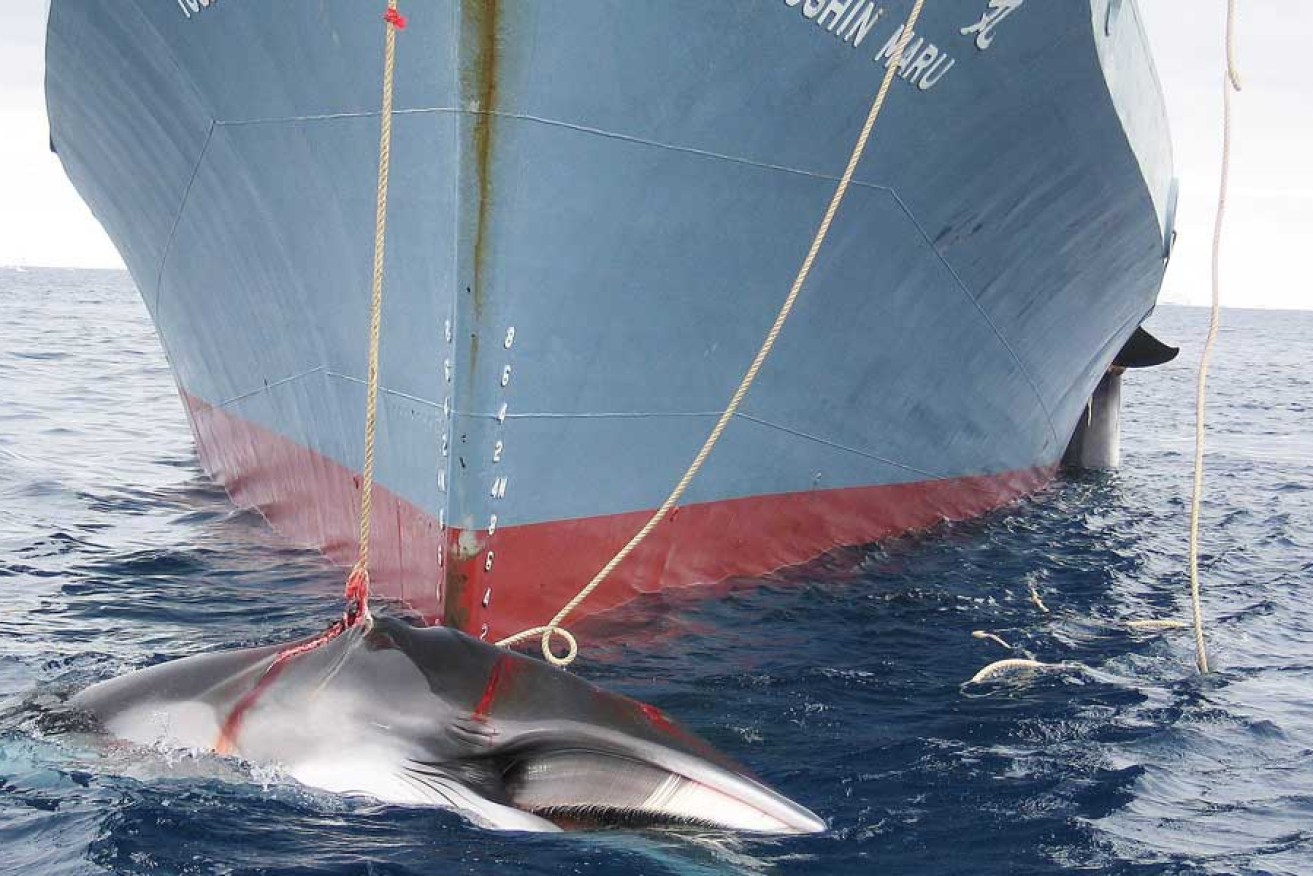Environmental campaigner Pete Bethune waited decades for Japan to be hauled before the international court over its whaling in the Southern Ocean, and his patience was tested one final time when the judgment was delivered in The Hague.
International Court of Justice president Peter Tomka took almost two hours to read out Monday’s ruling that should end years of diplomatic wrangling and violent clashes in Antarctic waters.
“It took a long time for the moment to come,” Bethune said of the moment Judge Tomka stated Tokyo’s hunt was “not for purposes of scientific research”, as had been asserted by Australia, and was therefore illegal.
“It wasn’t until the very end (of the ruling).”
The former Sea Shepherd activist could just as easily have been talking about the decades-long campaign to end Japan’s hunt which has seen 10,000 minke whales killed since a 1986 ban on commercial whaling.
The ICJ decision is unlikely to have an impact on whale populations migrating through South Australian waters.
According to Blue Whale researcher, Dr Catherine Attard of Flinders University, most whales that migrate to and from South Australian waters each year are Southern Right Whales and Blue Whales, the latter of which had been protected from cull since the 1970s and won’t benefit from the halt of Japanese whaling in the Southern Ocean.
The central targets for Japan’s cull have been Minke Whales, which mostly migrate through Queensland waters.
For Bethune the fight is deeply personal.
The New Zealander was detained by Japanese authorities for five months in 2010.
He was seized after he boarded a whaler with the intention of making a citizen’s arrest of its captain, for the attempted murder of the crew on the speedboat Ady Gil, which had previously sunk after colliding with the larger ship.
“To come here today to this court and be vindicated – it’s an amazing day,” a clearly emotional Bethune said at the Peace Palace.
“I was paraded around like a common criminal (in 2010) and yet I was fighting something that I always knew was illegal and to have it proven here today, in the highest court in the world, I couldn’t be happier.”
The 48-year-old said “everything” had been on the line in the legal stoush between Canberra and Tokyo.
If Japan had won it would have legitimised so-called “research whaling” in Antarctica and other countries may joined Tokyo’s fleet heading south each summer, he said.
“I was pretty nervous walking into the court.”
The ICJ focused on whether Japan’s whaling program was genuine scientific research.
During the three-week hearing in mid-2013, Australia argued Tokyo was cloaking a commercial whaling operation “in the lab coat of science”.
Lawyer Philippe Sands QC argued: “What you have before you is not a scientific research program it is a heap of body parts taken from a large number of dead whales.”
The court on Monday backed Canberra’s view.
“The court dissected Japan’s scientific program, pulled it to bits, and proved that the amount of science is tiny relative to the commercial aspect,” Bethune said.
“In the end justice has been served here today.
“I’d be surprised if they ever go back to Antarctica.”
Greenpeace spokesman John Frizell hopes Japan’s vessels do return to the Southern Ocean – just minus their harpoons.
He said the long-distance ships would be great for sight-seeing or non-lethal research.
Frizell congratulated Australia on Monday’s successful outcome but noted it had been a long journey.
“In the run-up to this Australia said they would try every diplomatic means possible to convince Japan to stop whaling in the Southern Ocean and they would only go to the ICJ as a last resort,” the veteran campaigner said.
“They followed that through over years and years, with a lot of people very concerned that they should have moved more quickly, but they exhausted every possible diplomatic channel before finally going to this.
“Their judgment has now been spectacularly vindicated.”
– additional reporting Bension Siebert





